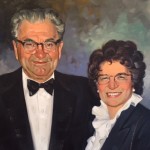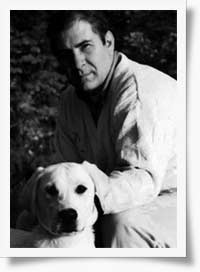 On July 4, 1776, our first Independence Day, one of the first acts of the Continental Congress was to pass a resolution authorizing a committee to research and devise a National Motto, as well as a seal for the new Nation. The task of coming up with the motto and designing the seal was given to Benjamin Franklin, Thomas Jefferson, and John Adams.
On July 4, 1776, our first Independence Day, one of the first acts of the Continental Congress was to pass a resolution authorizing a committee to research and devise a National Motto, as well as a seal for the new Nation. The task of coming up with the motto and designing the seal was given to Benjamin Franklin, Thomas Jefferson, and John Adams.
Two months later, on, September 9, 1776, Congress gave the new Nation a name – the United States of America. The honor of naming our country belongs to Thomas Paine, who has since been called America’s Godfather.
During that same meeting, Franklin, Jefferson, and Adams reported the recommendations of their committee. They recommended “E Pluribus Unum” for a national motto – “From the Many One.” If you look on the back of a dollar bill, you will note the American bald eagle is the most prominent feature on what is the front of the Great Seal of the United States. In its beak the eagle grasps a flowing ribbon bearing that motto.
The motto reminds us that out of many states – and many different people – one nation was born. The thirteen colonies had banded together to fight a common enemy, but they had always had a separate existence.
At the birth of our nation, the concern for unity was strong enough that Benjamin Franklin felt obliged to comment on it before signing the Declaration of Independence. “We must, indeed, all hang together,” Franklin said, “or most assuredly we shall all hang separately.”
Many years before, John Winthrop, the visionary leader of the Puritans, recognized the challenge of unifying people with no common history, customs, traditions, or previous connection. In a speech to his fellow Puritan colonists in 1630, Winthrop defined his vision of the society he hoped to establish in the new world.
“All true Christians are of one body in Christ,” he said; “the ligaments of this body which knit together are love. All parts of the body being thus united…in a special relation as they partake of each others’ strength and infirmity, joy, and sorrow…If one member suffers, all suffer with it; if one be in honor, all rejoice in it.”
“We must be knit together in this work as one man,” he warned. “We must entertain each other in brotherly affection. We must be willing to abridge ourselves of our superfluities, for the supply of other’s necessities…For we must consider that we shall be as a City on a Hill. The eyes of all people are upon us.”
This is a large part of what makes the United States unique in the history of the world. America is the only nation composed of people drawn from another place. It is the only nation whose people are not connected by blood, race, culture, or original language. De Tocqueville and every observer since his time has wondered how such a union could be maintained.
Fortunately, the assembly that was given the task of structuring our national unity contained some of the finest minds and arguably the noblest characters to have ever appeared in the New World. Fortunately, the assembly had George Washington as its President.
The documents they developed – the Constitution and the Bill of Rights – defined the structure of our government, our citizens’ relationship to their government, and our relationship to each other. As Americans, we are asked to balance our individual interests with the common good, our ambition with compassion, enterprise with responsibility, liberty with spirituality.
Despite the obvious success of their initial efforts, the founders of our nation continued to express concern for our unity. “The unity of government, which constitutes you one people,” George Washington said in his farewell address, “is a main pillar in the edifice of your real independence…and that very liberty, which you so highly prize.”
At his inauguration after a bitter and partisan election, Jefferson said, “Let us, then, fellow citizens unite with one heart and mind.” Playing the peacemaker, he reminded the contending forces that “every difference of opinion is not a difference of principle.”
Shortly after the civil war, when the strength of the union was sorely tested, a Boston magazine called the Youth’s Companion created and published a twenty-two word recitation for school children to use to commemorate the 400th anniversary of Columbus’ discovery of America. Understandably, the issue of unity was very much on their minds. What they created was the earliest version of what we now know as the Pledge of Allegiance.
The pledge they developed has been revised several times through the years and was not adopted officially until 1942. It was revised again in l954 when the words “under God” were added; but the focus of the Pledge in every version from the first to the last has been the request to pledge allegiance to the flag of the United States of America and what it represents: one nation, indivisible with liberty and justice for all.
Concerns for national unity remained well into the 20th Century. President Eisenhower’s second inaugural address included the hope that we “may we know unity without conformity.” President Kennedy in his inaugural address reminded us that “United, there is little we cannot do…Divided, there is little we can do.” President Johnson followed suit, saying, “We are one nation and one people. Our fate as a nation and our future as people rests not upon one citizen, but all citizens.”
America is a rag-tag nation, built from the flotsam and jetsam, the scraps and misfits of the world. At times the pieces don’t seem to fit and our individual interests, our determined pursuit of success and happiness, seems to overwhelm our sense of community. But when we are tested, as we were on September 11, 2001, at Pearl Harbor, and during the Civil War, the spirit of America rises and there can be no doubt we are one people, crying with one voice: United we stand!
At times like these, we are reminded that our true interest is a mutual interest. The doctrines that would divide us, the people that would separate us, those who put race against race, religion against religion, class against class, and worker against employer are false and doomed to fail.
Everyone is needed. Everyone can contribute. Individually, we may only have a small piece of the puzzle but each of us has at least one piece and every piece is essential. This is where community begins.
Community comes when people see hope where there is fear and decide to join hands, linking themselves with others in a common cause. Community comes when people decide not to ignore a problem or run away, but to reinforce each other and take on apathy and despair. Community comes when we realize selfishness is at the root of all moral evils; selflessness is the goal of human existence.
The path to liberty cannot be taken until we recognize the fundamental fact that serving others is our common duty and birthright. An individual has not started living until he or she can rise above the narrow confines of their personal interests to the broader concerns of humanity. A nation cannot survive separate and apart.





